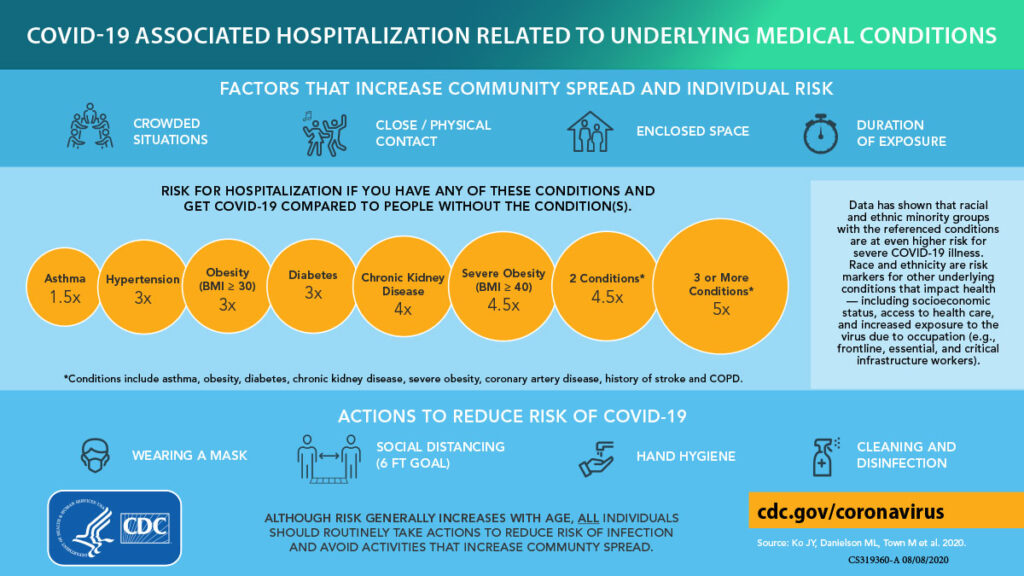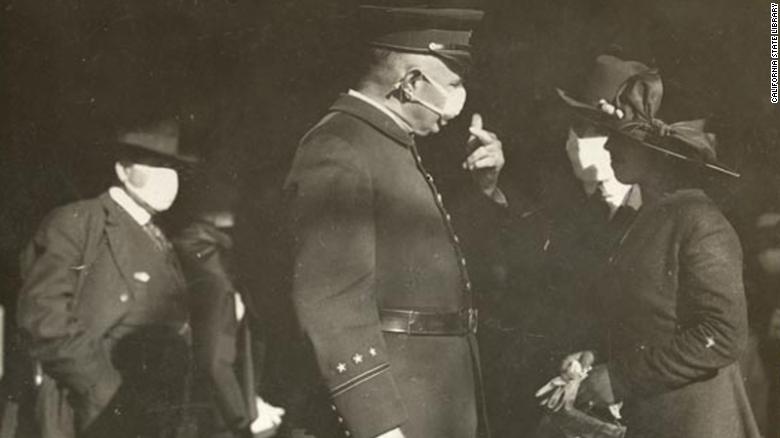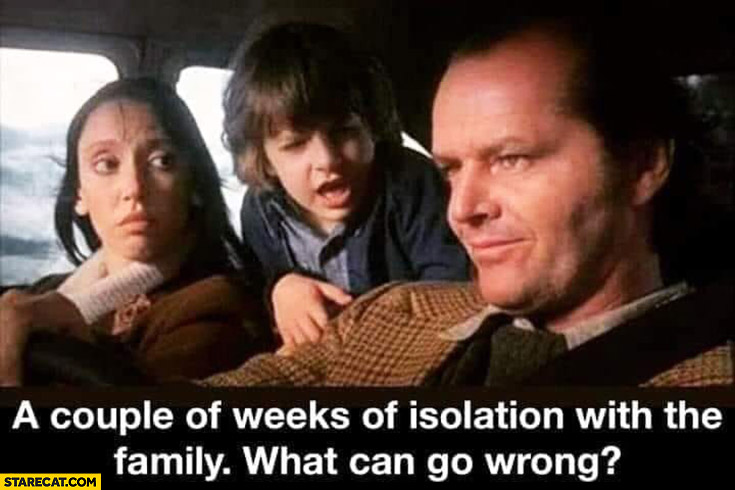Part 2 – Personal Responsibility
I fully admit to being skeptical of the impacts of the novel coronavirus when Christian and I were in Japan this past January and February. I politely smiled and nodded when my Japanese mom handed us a stack of face masks so we could protect ourselves on our travels. I even repeated the claim that “the flu is deadlier than the coronavirus” for a few weeks after we returned to the States. I boarded airplanes to and from Utah to run a half marathon with a friend at the end of February. Christian and I continued to socialize, attending birthday parties and getting drinks with friends… right up until the middle of March.
Again, full disclosure, I am the executive director of a public health non-profit, and while I will be mentioning that job in this series, my opinions here are my own and do not reflect the positions of the organization.
“The better part of valor is discretion“
March 13, 2020: the same day Governor Wolf closed schools for two weeks was the same day I closed my office for two weeks… and then indefinitely. As I mentioned in last week’s post, there was no way I was going to take any chances with my employees’ health, so I learned as much as I could about recommendations for returning to work from the state[1] and from the Centers for Disease Control and Prevention (CDC).[2] With the “red-yellow-green” traffic light approach to shutdown and subsequent reopening of Pennsylvania’s counties, it looked like we were on track to return to the office on July 1… and then we weren’t, as Allegheny County’s confirmed cases skyrocketed to levels higher than they were during the early days of the school closings in March.
Christian and I have been incredibly cautious, so much so that we have earned some scoffs and eyerolls from friends and family (but surprisingly not from my conservative parents). I am fully aware that if my actions impacted myself only, I would be a lot more carefree because I am reasonably young and healthy. However, since I know that every decision I make impacts others, including each person in my family, all of whom are in at least one high-risk group for the virus,[3] I have chosen to err on the side of caution whenever possible. And that has made for a very long five months.

Image credit: [4]
I am incredibly grateful that my job that can be done almost entirely remotely (I still need to meet with our accountant once a week to sign checks, but other than that, I’m on Zoom all day). Christian cannot work from home, but, being in a high-risk group, he’s allowed to go during off-hours when there are fewer people there, which is not ideal but a nice concession. We don’t forget for a minute how incredibly lucky we have been through the pandemic, having both job and housing security. Some of our friends, many of whom are in the service industry, have had to live through the uncertainty of what the pandemic means for their jobs, income, and health insurance, and I’ll be talking about that more in the coming weeks.
Cabin Fever + Sensationalism
My cushy quarantine routine has consisted of working remotely, cooking,* gardening,* cleaning,* blogging, following news on the virus,* watching Netflix, and turning down invitations for social activities. I’m sure the kitties love how much we’ve been home lately, but lack of interaction with the outside world has been increasingly difficult. While we are both extroverts who don’t like the separation from our communities of friends and multitudinous hobbies, we have at least been able to pat ourselves on the back for staying in and limiting the spread of the virus. Self-righteous determination goes a long way, it turns out.
*when I have the energy
Even in the best of circumstances (like mine), it has been a long quarantine, and social isolation is draining in its own way. The internet is a mixed blessing, as it serves as a doorway to the outside world, but also as an echo chamber of increasingly entrenched positions, devoid of empathy. Being stuck inside for so long, having politicians tell us where we can go, when we can work, and what we have to wear on our faces is, I imagine, very hard for people who already feel that they don’t have any control over their own lives. Flouting a mask mandate strikes me as one tiny way to claim control in an otherwise uncertain world – and again, I wouldn’t mind if deciding not to wear a mask only impacted the person making that decision, but, sadly, it does not.

Image credit: [5]
Last week I wrote about the non-linear nature of the scientific method and how we’ve seen changes in health-protective guidance around the coronavirus as new information comes to light. Unfortunately, such contradictions of previous guidance have eroded public faith in scientific research, public health institutions, and the politicians who make decisions based on their guidance. From a purely psychological standpoint, I can begin to understand why there are people who feel that we can’t even trust what health officials say, calling into question whether or not this is even a real health crisis.
Uncertainty is incredibly difficult to handle. In general, humans even prefer bad news to uncertainty,[6] but while we know that this pandemic is bad, we don’t know how bad it will ultimately be from the perspective of total deaths, lost jobs, permanent health impacts on survivors, or economic recovery time. Because there are still so many unknowns, our brains are wired to cling to a definitive narrative: either one we’re told or one we create on our own. The most definitive narrative around the virus (and the most comforting) is that it’s not that bad, the flu is worse, and as long as you’re young and healthy, you have nothing to worry about.
Out of love
I have spent the last five months taking whatever steps I could to protect myself, my family, friends, and coworkers; to educate myself on the most recent information from public health experts and incorporate the most recent guidance into my daily routines at home and at work; and to show empathy for everyone I’ve encountered, despite their personal politics or opinions on the severity of the situation. I understand that people are scared, and sometimes that manifests as anger or denial. I understand that some people can’t afford not to go to work or not to open their businesses, and I don’t begrudge them that as long as they do it as safely as possible. Indeed, there are things we can all be doing to protect each other, and that does not involve flocking en masse to beaches, bar crawling on Pittsburgh’s south side, or even hosting crowded parties in the back yard (as some of our neighbors have done in recent months.)

Image credit: [7]
One thing that stuck with me from the White Fragility discussion group I wrote about earlier this summer[8] was a conversation we had around why we ultimately change our behavior. I think the topic under discussion involved stopping the use of specific phrases that aren’t overtly bigoted but still have historically-racist undertones. In this instance, we imagined people might stop using a certain phrase because they’re “supposed to,” “expected to,” or might “feel guilty” if they don’t. My friend leading the group explained how that approach is doing the right thing, but for the wrong reasons. A better reason would be this: if you genuinely feel love for someone impacted by your decision, you would want to refrain from doing something that harms them. That rationale applies to the situation under discussion at the time (i.e. sustaining structures of racism in our country) but also to the idea that wearing a mask and staying home whenever possible could help prevent the spread of the virus to people you love.
While recognizing that my quarantine has been so very easy compared to so many others’, it surprised me how much energy and will power it has taken for me to act out of love and do what I believe is right to protect others over the last five months. Christian and I have been so incredibly careful for so long that it is emotionally defeating to see people going out and doing things that I desperately want to do, like visit family. And that’s why I was especially angry when we had our own COVID-19 scare a few weeks ago.
~
Tune in next week to hear more about my adventure of successfully scheduling a test, experiencing a nasal swab, and contemplating the real impacts of what positive a test result would mean.
Thank you for reading.
[1] https://www.oa.pa.gov/returningtowork/Documents/employee-returning-work-guide.pdf
[2] https://www.cdc.gov/coronavirus/2019-ncov/community/guidance-business-response.html
[3] https://www.cdc.gov/coronavirus/2019-ncov/need-extra-precautions/people-with-medical-conditions.html
[4] https://www.cdc.gov/coronavirus/2019-ncov/covid-data/investigations-discovery/hospitalization-underlying-medical-conditions.html
[5] https://www.cnn.com/2020/08/16/us/face-mask-partisan-issue-2020-1918-trnd/index.html
[6] https://www.psychologytoday.com/us/blog/the-right-mindset/202002/why-uncertainty-freaks-you-out
[7] https://starecat.com/shining-a-couple-of-weeks-of-isolation-with-the-family-what-can-go-wrong-jack-nicholson/
[8] https://radicalmoderate.online/everyones-a-little-bit-racist-part-1/
0 Comments